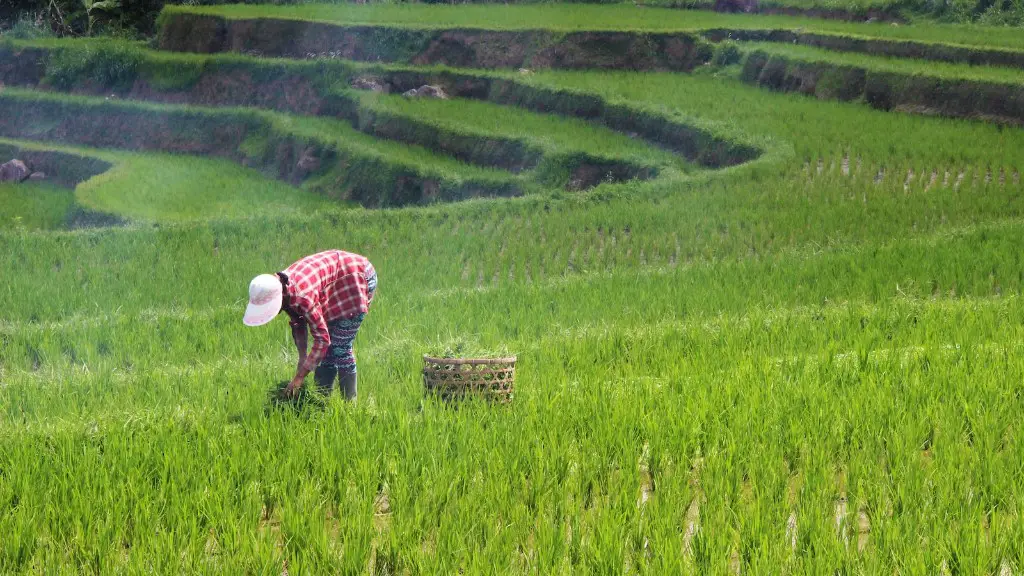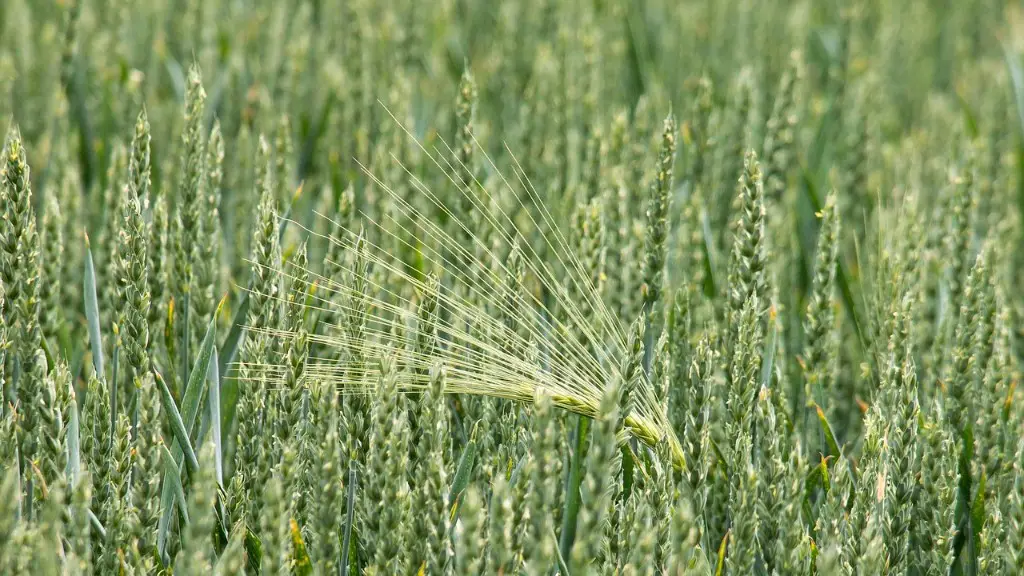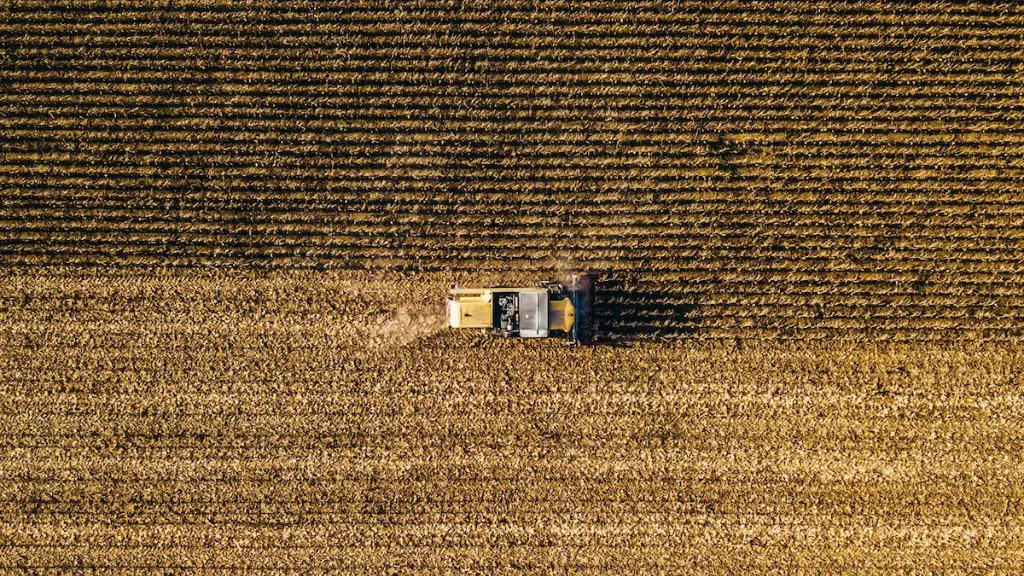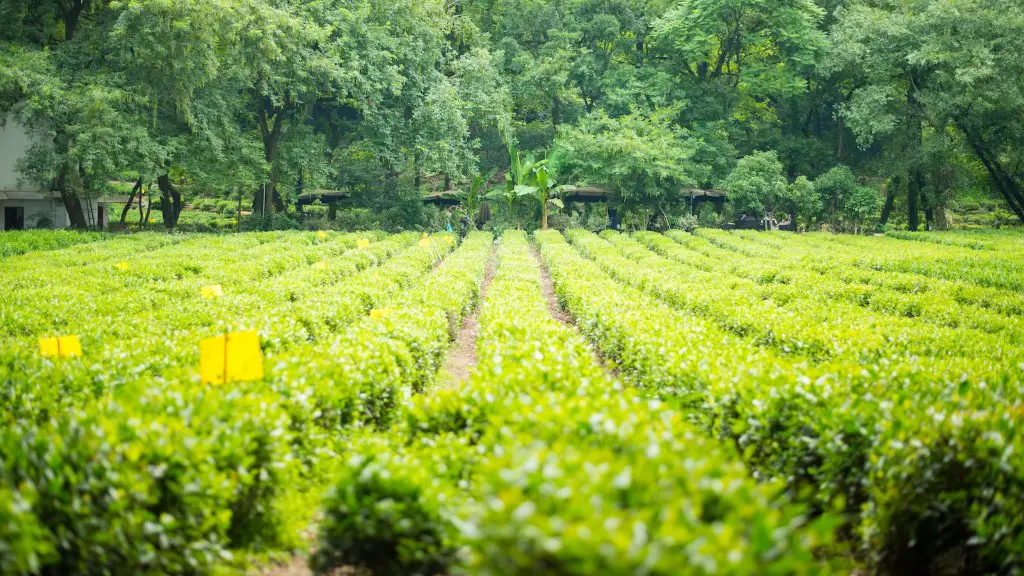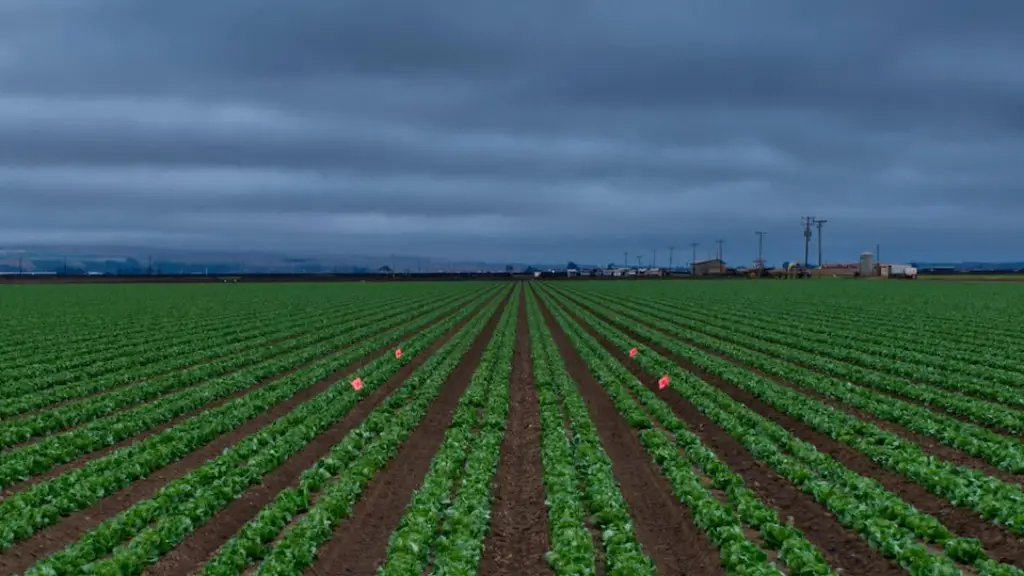A biochemist in agriculture is someone who uses their knowledge of biochemistry to help farmers and other agricultural professionals produce food and other products. They may work in a laboratory, testing soil and water samples to determine the nutrient content, or they may work in the field, advising farmers on the best way to use fertilizers and pesticides. Some biochemists also work in food processing, ensuring that the food we eat is safe and nutritious.
There is no one-size-fits-all answer to this question, as the best way to become a biochemist in agriculture may vary depending on your qualifications and experience. However, some ways to become a biochemist in agriculture include studying agriculture or related subjects at university, working in a relevant field such as agricultural research, or becoming involved in agricultural policy.
What does a biochemist do in agriculture?
Researchers are working to genetically engineer crops so that they will be resistant to drought, disease, insects, and other afflictions. This will help farmers to produce crops more effectively and reduce wastage. Biochemists and biophysicists are also investigating alternative fuels, such as biofuels, which are renewable energy sources from plants.
The education needed to be a biochemist is normally a bachelor’s degree. Biochemists usually study biochemistry, biophysics, molecular biology, biology or chemistry. 74% of biochemists hold a bachelor’s degree and 16% hold a master’s degree.
How many years does it take to become a biochemist
A Biochemistry master’s degree typically takes between two and three years to earn. Students in these programs take advanced coursework in areas such as genetics, stem cell research, bioethics, and bioorganic chemistry. Most doctoral degree programs include two to three years of advanced study in these same areas. Doctoral degree programs usually take four to six years to complete.
The median salary for a biochemist is $102,270. The best-paid 25% of biochemists make $132,390, while the lowest-paid 25% make $79,000.
What is the salary of biochemist in agriculture?
This is a great salary and will allow you to live a comfortable lifestyle. With this salary, you will be able to afford a nice home, a nice car, and a good lifestyle. You will be able to save money and have a good financial future.
Biochemistry is a branch of chemistry that deals with the chemical processes that occur in living organisms. It covers a wide range of topics, from the structure and function of biomolecules to the regulation of metabolism.
There are many different career paths in biochemistry, and the field offers a variety of high-paying job opportunities. Here are eight of the highest-paying biochemistry jobs that you might not know about:
1. Biochemist/Pharmaceutical Chemist
median salary: $86,950
2. Biologist
median salary: $79,840
3. Chemical Engineer
median salary: $77,600
4. Clinical Laboratory Technician
median salary: $36,280
5. Microbiologist
median salary: $64,940
6. Chemist
median salary: $74,740
7. Pharmacist
median salary: $116,670
8. Neurologist
median salary: $183,180
Is biochemistry a hard major?
Biochemistry or biophysics majors come in 8th place for hardest major, with an average of 18 and a half hours spent getting ready for class every week.
Students majoring in biochemistry, or biological chemistry, look closely at the chemical processes and substances in living organisms. The scope of this major is vast, from learning about cells and membranes to metabolism, genetic information and disease.
While a biochemistry or biophysics degree can lead to many different career paths, most students who pursue this major are interested in becoming research scientists. If you’re considering a biochemistry or biophysics major, you should be prepared for long hours in the lab and a heavy course load. But the rewards of this challenging major can be great, and you’ll be at the forefront of some of the most exciting discoveries in the field of life sciences.
Yes, students need to go for at least a master’s course to make a career in this field. The competition is stiff and a master’s degree will give you the edge you need to succeed. A master’s degree will also provide you with the opportunity to specialize in a particular area of interest.
What are the disadvantages of being a biochemist
Working as a biochemist carries with it the same risks as any other job. The most common of these is the risk of exposure to hazardous materials. Those working with dangerous chemicals or substances must take precautions to protect themselves, such as wearing protective clothing and using safety equipment.
Biochemistry is an excellent choice if you are unsure of your future career plans. The reason for this is that biochemistry can lead to a broad range of related careers. For example, you could work in a research lab, product development, healthcare or forensics. The possibilities are endless!
Is biochemistry hard or easy?
From the perspective of someone who has gone through the challenges of a biochemistry course, we can say that yes, biochemistry can be hard. However, with the right strategies in place, it is possible to overcome the challenges and succeed in the course. For example, studying regularly, making use of available resources (such as study guides and online materials), and breaking down the material into manageable chunks are all great ways to set yourself up for success.
Biochemistry is the study of the chemical processes in living organisms. It covers a wide range of topics, from the structure and function of biomolecules to the regulation of metabolism.
There are many different fields of biochemistry, each with its own focus. Clinical biochemists study diseases and use their knowledge to develop new treatments. Industrial biochemists develop new products and processes for industry. Agricultural biochemists work to improve crop yields and animal husbandry.
Biochemists also work in many other fields, such as environmental science, pharmaceuticals, and forensics. No matter what their specialty, all biochemists use their knowledge of chemical processes to improve our understanding of the living world.
How much does a biochemist at Pfizer make
The estimated total pay for a Biochemist at Pfizer is $129,259 per year. This number represents the median, which is the midpoint of the ranges from our proprietary Total Pay Estimate model and based on salaries collected from our users.
The Bureau of Labor Statistics projects 153% employment growth for biochemists between 2021 and 2031. In that period, an estimated 5,700 jobs should open up. Biochemistry delves into the chemical processes of living organisms. The study of biochemistry can lead to a career in medicine, research, or teaching.
What is the lowest salary of a biochemist?
Biochemists in the United States make an average salary of $72,910 per year, or $3505 per hour. The bottom 10% of Biochemists make less than $47,000 a year, while the top 10% make more than $110,000 a year.
The highest paying jobs in agriculture typically involve engineering and management positions. Agricultural engineers design machines and equipment to be used on farms, while agronomists specialize in crop production and soil management. Veterinarians care for the health of farm animals, and winemakers oversee the production of wine. Farm managers are responsible for the overall management of a farm, and agricultural sales representatives sell farm products to buyers.
What is the best career in agriculture
There are many top careers in agriculture that can lead to a successful and rewarding career in this field. Agricultural engineers work to design and develop new and improved agricultural systems and equipment. Agricultural economists conduct research and analyze data to help farmers and agribusinesses make better decisions about production, marketing, and other business operations. Farm managers oversee the daily operations of farms, including crop production, animal husbandry, and financial management. Soil and plant scientists conduct research to improve our understanding of how plants grow and how they interact with the environment. Conservation planners develop plans to protect and conserve natural resources. Commercial horticulturalists grow and sell plants for landscaping, floral, and garden purposes. Agricultural salespeople sell products and services related to agriculture, such as fertilizers, seed, and farm equipment.
The demand for crop specialists is increasing as the world population continues to grow. There are many different career options available in this field, including working in educational institutions, government, or industry. Cropping systems engineers work to develop efficient and environmentally sustainable methods of crop production. Plant specialists help farmers choose the best crops for their needs and provide information on how to grow them. Crop inspectors work to ensure that crops meet quality standards set by the government or industry. Research scientists study the genetics of plants and work to develop new varieties of crops.
Warp Up
There is no one-size-fits-all answer to this question, as the best way to become a biochemist in agriculture may vary depending on your qualifications and experience. However, some tips on how to become a biochemist in agriculture may include studying agriculture and related sciences at the undergraduate or graduate level, working in agricultural research, or teaching agricultural science. Additionally, maintaining membership in professional organizations, such as the American Society for Biochemistry and Molecular Biology, and staying up-to-date on new developments in the field can also help you in your career as a biochemist in agriculture.
In order to become a biochemist in agriculture, one must first earn a bachelor’s degree in biochemistry, agricultural science, or a related field. Next, one must complete a minimum of two years of supervised practical experience in agricultural biochemistry. Finally, one must pass the ABSA International Certification Examination.
